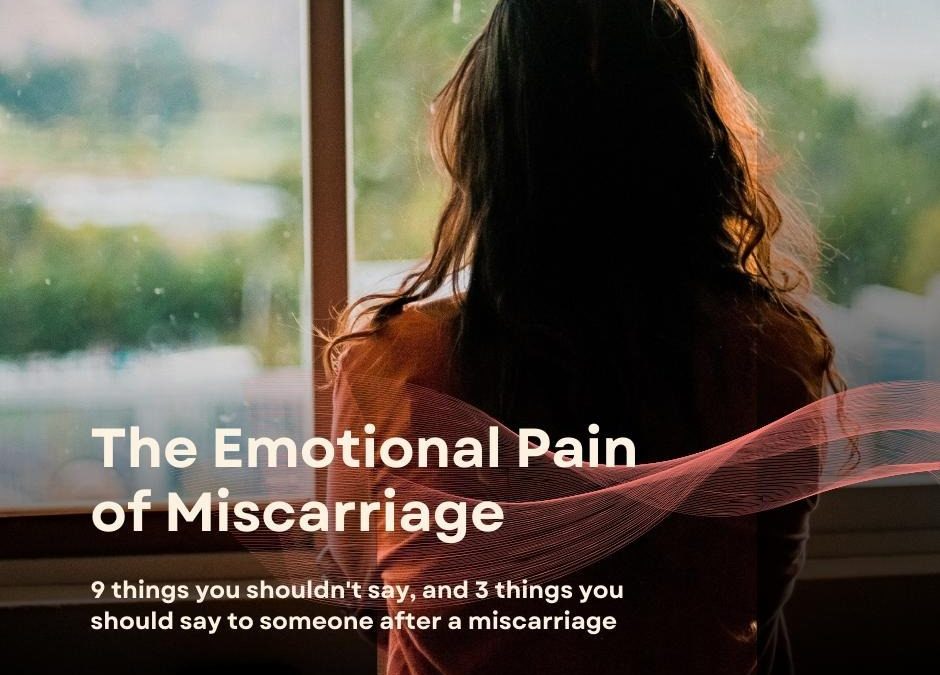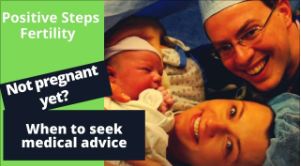You’re finally there. After hoping and praying to be pregnant, at last, the test is positive. But something’s off. And then the bleeding and cramping begin. For all the dreams that were there, you feel like you must start over. And with how devastating a miscarriage can be, you’re not sure you can do it again.
A recent article in Psychology Today notes that a miscarriage:
Often evokes a deep sense of grief; feelings of guilt, shame, failure, and loneliness are both natural and common. Some develop depression or anxiety.
https://www.psychologytoday.com/us/basics/miscarriage
When parents-to-be discover a pregnancy, they begin to envision life with their future child. They may name the baby, prepare the house for its arrival, or daydream about time the family will spend together. Being forced to let go of those expectations and hopes can be painful.
Pregnancy loss, despite its prevalence, still seems to be shrouded in silence. A couple may not feel justified sharing the extent of their grief, or a friend may believe that it would be rude to inquire, which can compound feelings of loneliness. Yet sharing the experience can be tremendously helpful. Friends and family should not shy away from asking about the experience. It won’t make the person feel worse, and she or he will simply decline to discuss it if they prefer.
Even without a history of infertility, a miscarriage can be overwhelming.
It is as though a part of you that is supposed to be there has been taken away, and many never feel whole in the same way again, even with time and future success. To make it worse, nobody likes to talk about the emotional effects of miscarriage. So, suffering is compounded by feeling alone. Family and friends need to walk that delicate balance of being supportive without forcing advice or solutions that may not apply even if offered with good intentions. Couples going through miscarriage frequently want to know how much others care far more than they care how much others know.
There are all kinds of medical advice that can be given, where some testing can provide answers, and some treatments can improve the odds for the future. It is critical to know that there is hope after surviving miscarriage – and not just from sheer positivity, but because medical data says so.
What percentage of pregnancies end in Miscarriage?
According to an article in Medical News Today, “the average chance of miscarriage by the age of the pregnant person is as follows:
– Under 35 years old: There is a 15% chance of pregnancy loss.
– Between 35 and 45 years old: There is a 20–35% chance of pregnancy loss.
– Over 45 years old: There is a roughly 50% chance of pregnancy loss.
https://www.medicalnewstoday.com/articles/322634#miscarriage-rates-by-age
What percentage of women get pregnant after having a miscarriage?
According to American Pregnancy Association,
“Many couples who experience a miscarriage worry that it will happen again. Fortunately, at least 85% of women who have had one loss will go on to have a successful pregnancy the next time, as will 75% of those who have experienced two or three losses.”
https://americanpregnancy.org/getting-pregnant/pregnancy-loss/pregnancy-after-miscarriage/#:~:text=Many%20couples%20who%20experience%20a,experienced%20two%20or%20three%20losses
What is the most common cause of miscarriage?
Most miscarriages (about 60%, though some, may estimate it may even be as high as 80-90%) occur randomly when an embryo is formed with errors in the DNA from either the sperm or egg. This type of genetic problem is often by chance without a medical condition that causes it. However, it becomes more common in women of increased reproductive age. https://www.acog.org/womens-health/faqs/repeated-miscarriages
Women ovulate their highest quality eggs first, so as they get older, there are more likely to be chromosomal variations in the remaining eggs, which is why Down syndrome and miscarriages become more common later in life. Sperm also can acquire more problems with the DNA with age, though these are often harder to detect. Also, many other circumstances, such as smoking, excessive alcohol consumption, inflammatory diseases, and more, can age the DNA of eggs or sperm beyond that is normally expected.
Emotions and Miscarriage
When looking at data, you can see the odds are in your favor of having a successful pregnancy after having a miscarriage. Miscarriage is not an unusual event and 85% of women will go on to have a successful pregnancy the next time.
That said, what is equally important is knowing how to balance complex thoughts and emotions when so many feelings are legitimate.
An article by Robin Elise Weiss, Ph.D., MPH, notes 9 things you should never say to someone after a miscarriage and 3 things you should say.
Things You Shouldn’t Say:
- You can always have another
- Now you have an angel looking after you
- It’s for the best
- At least you didn’t know your baby
- There must have been something wrong
- Did you do something you weren’t supposed to?
- I understand how you feel
- Have you ever thought of not having children?
- Be grateful for the children you have
Things You Should Say:
- I’m sorry.
- What can I do to help?
- I’m here for you.
In our fertility practice, we hear from so many patients who’ve received well-intended but misguided advice and comments. Moreover, what may be the right thing to say at one point may be different at another. For example, after the tragedy, we all want to hear that things will ultimately be OK. Yet I’ve also been told, “I don’t want people telling me it will be alright. They don’t know what they’re talking about—I want someone to tell me it’s OK to smash some dishes.” – Please don’t- we don’t want you or your family getting cut or hurt. And if you do, use the cheap plates, not good China.
Similarly, people may try to joke at the moment, even when there is nothing funny about a miscarriage. It’s only because they’re uncomfortable. There’s a desperate desire on their part to lighten the mood. But when people are put in uncomfortable situations, their efforts to make you feel better typically fall flat. Failed humor and platitudes are often an attempted expression of love, which counts for something, even if they’re ineffective.
Finding the optimism to survive the emotional effects of miscarriage
At Positive Steps Fertility, we’re all about optimism. We see miracles daily, but no one has only highs without lows, and miscarriages will bring us to tears just like the women who suffer them.
However, it helps women recover when we can tell them how many others have lost a pregnancy and then successfully made it to the other side. After all, while we have a lot of knowledge, what matters, even more, is perspective. Just this week I’ve seen the heartbeats in pregnancies for multiple women who never thought it would happen.
The body may sometimes say “not right now” to your fertility aspirations, but we can help you understand and improve your fertility journey to when. For additional insight, follow us on Facebook and tune in on the first Friday of every month for First Friday Fertility Live at noon CST!
Fertility is hard. Get answers. Get support. Get peace.
We hope that 2022 brings you the babies and family of your dreams!




